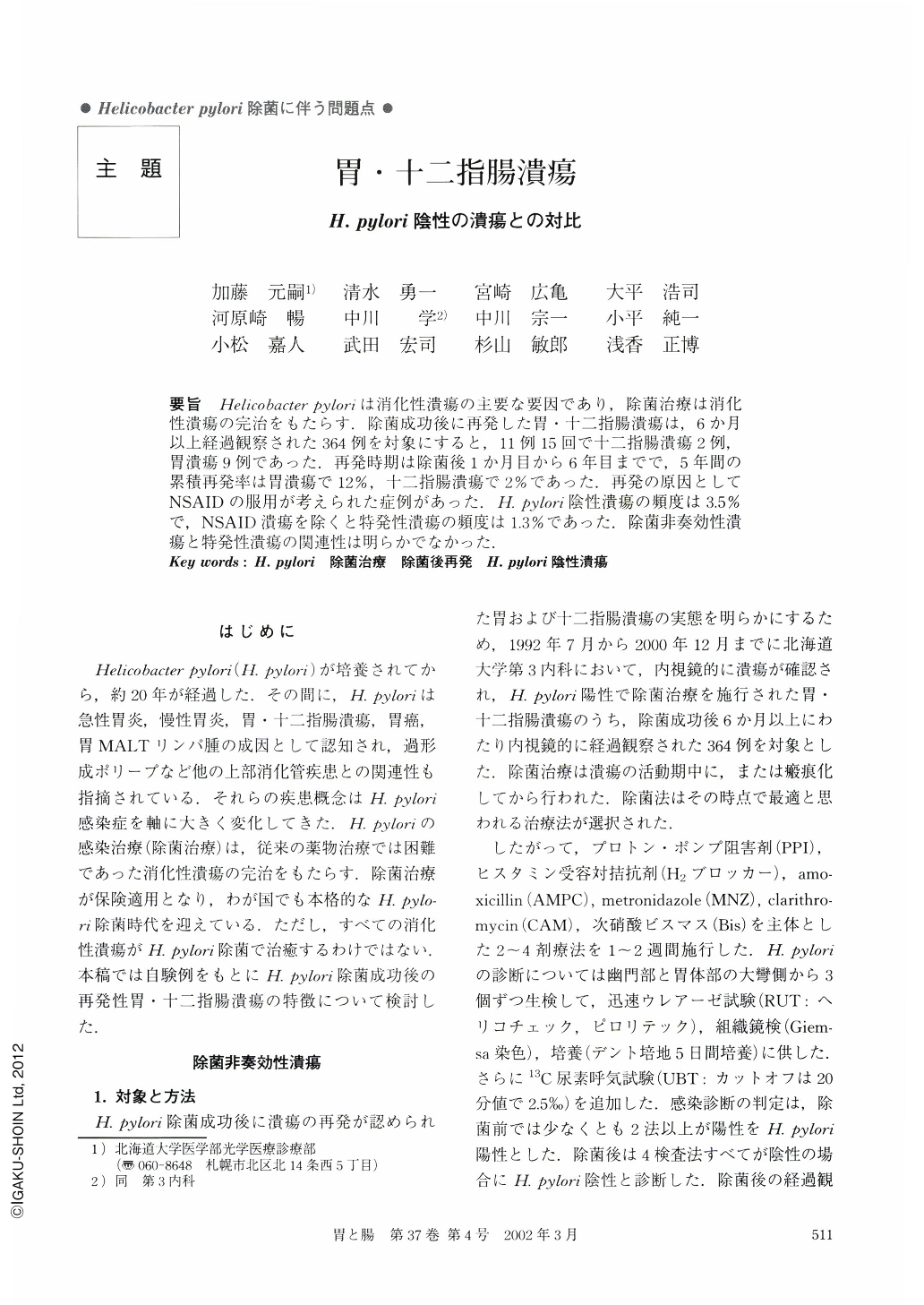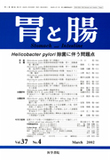Japanese
English
- 有料閲覧
- Abstract 文献概要
- 1ページ目 Look Inside
要旨 Helicobacter pyloriは消化性潰瘍の主要な要因であり,除菌治療は消化性潰瘍の完治をもたらす.除菌成功後に再発した胃・十二指腸潰瘍は,6か月以上経過観察された364例を対象にすると,11例15回で十二指腸潰瘍2例,胃潰瘍9例であった.再発時期は除菌後1か月目から6年目までで,5年間の累積再発率は胃潰瘍で12%,十二指腸潰瘍で2%であった.再発の原因としてNSAIDの服用が考えられた症例があった.H. pylori陰性潰瘍の頻度は3.5%で,NSAID潰瘍を除くと特発性潰瘍の頻度は1.3%であった.除菌非奏効性潰瘍と特発性潰瘍の関連性は明らかでなかった.
Helicobacter pylori (H. pylori) is a most important factor for inducing peptic ulcers. Successful eradication of H. pylori usually brings about complete cure of peptic ulcers. In my study that followed up 364 cases with peptic ulcers for more than 6 months after eradication of H. pylori, there were still 15 recurrent peptic ulcers in 11 cases after H. pylori infection had been cured. These cases included 2 duodenal ulcers and 9 gastric ulcers. The period of recurrence ranged from 1 month to 6 years after successful eradication. Cumulative recurrent rates for 5 years showed 2% in duodenal ulcers and 12% in gastric ulcers. Intake of NSAID was suggested as one of the causes of recurrent H. pylori-negative ulcers. The frequency of H. pylori-negative ulcer was found to be 3.5% in all peptic ulcers without eradication. Excluding NSAID intake cases, the frequency of idiopathic ulcers was considered to be 1.3%. The relationship between recurrent ulcer after successful eradication and idiopathic ulcer was not clarified.

Copyright © 2002, Igaku-Shoin Ltd. All rights reserved.


